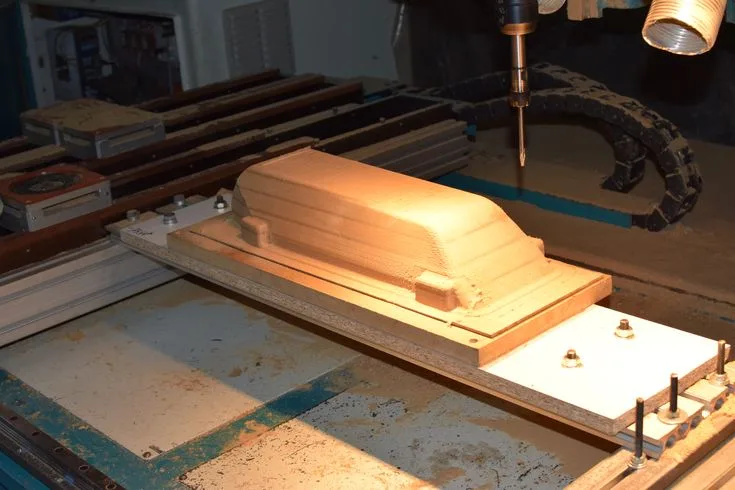Introduction
Fiberglass mold manufacturing plays a crucial role in various industries, from automotive to construction and marine applications. These molds are essential for creating durable, high-quality products with precision and efficiency. As the demand for fiberglass molds grows, the need to partner with reputable manufacturers has become more significant than ever. This guide dives into the processes behind fiberglass mold manufacturing and introduces some of the leading companies shaping the industry today.

fiberglass mold manufacturers
What is Fiberglass Mold Manufacturing?
Definition and Overview
Fiberglass mold manufacturing is the process of designing and constructing molds using fiberglass and resin materials. These molds serve as templates for creating composite parts, enabling mass production of items with consistent quality. Common applications include automotive panels, boat hulls, wind turbine blades, and architectural structures.
Key Materials Used in Fiberglass Mold Manufacturing
- Fiberglass Types:
- E-glass: Known for its excellent strength-to-weight ratio.
- S-glass: Offers superior tensile strength, ideal for high-performance applications.
- Resins:
- Polyester resin: Cost-effective and widely used for standard molds.
- Epoxy resin: Provides enhanced strength and chemical resistance.
The choice of materials significantly impacts the mold’s durability, flexibility, and performance.
The Fiberglass Mold Manufacturing Process
Design and Prototyping
The process begins with precise design work, often using CAD (Computer-Aided Design) software. This allows manufacturers to create detailed blueprints tailored to specific requirements. Prototypes, typically crafted from foam or clay, help visualize and refine the mold before production.
Mold Construction
- Layering Fiberglass and Resin:
- Fiberglass sheets are laid into the mold and saturated with resin.
- Multiple layers are added to achieve the desired thickness and strength.
- Techniques:
- Vacuum Infusion: Ensures even resin distribution and minimizes air pockets.
- Hand Lay-Up: A traditional method for smaller or less complex molds.
Curing and Finishing
Curing allows the fiberglass and resin to harden, solidifying the mold. After curing, the mold undergoes finishing processes such as sanding and polishing to ensure a smooth, defect-free surface.
Benefits of Working with Professional Fiberglass Mold Manufacturers
Expertise and Quality Assurance
Experienced manufacturers bring extensive knowledge to the table, ensuring high-quality molds that meet industry standards. Rigorous quality control processes guarantee durability, precision, and reliability.
Customization and Innovation
Reputable manufacturers offer tailored solutions, designing molds to meet unique project needs. Many also incorporate cutting-edge technologies, such as automated manufacturing systems, to enhance efficiency and accuracy.
Leading Fiberglass Mold Manufacturers in the Industry
Key Players to Know
Several companies have established themselves as leaders in fiberglass mold manufacturing. These include:
- Unicomposite: Known for its innovative use of eco-friendly materials.
- Wellco Industries: Specializes in large-scale industrial molds with precision engineering.
Factors That Set Leading Companies Apart
- Use of advanced technology, such as 3D printing for mold design.
- Commitment to sustainability by adopting eco-conscious materials and processes.
- Excellent customer service and comprehensive project support.
How to Evaluate and Choose the Best Manufacturer
When selecting a fiberglass mold manufacturer, consider:
- Their portfolio of completed projects.
- Customer testimonials and reviews.
- Industry certifications and compliance with standards.
Trends Shaping the Future of Fiberglass Mold Manufacturing
Technological Innovations
Emerging technologies, such as 3D printing and AI-driven design tools, are revolutionizing how fiberglass molds are created. These advancements enable faster production cycles and enhanced precision.
Focus on Sustainability
Sustainability is becoming a priority, with manufacturers exploring biodegradable resins and energy-efficient production methods to minimize environmental impact.
Industry Growth and Expanding Applications
The growing demand for lightweight, durable materials across industries like renewable energy and aerospace continues to drive innovations in fiberglass mold manufacturing.
Conclusion
Understanding the processes behind fiberglass mold manufacturing and recognizing the leading companies in the field can help businesses make informed decisions. Whether you’re looking for customized solutions or exploring the latest industry trends, partnering with the right manufacturer ensures quality and innovation.
Take the next step: Connect with top fiberglass mold manufacturers today and elevate your project to new heights!




























